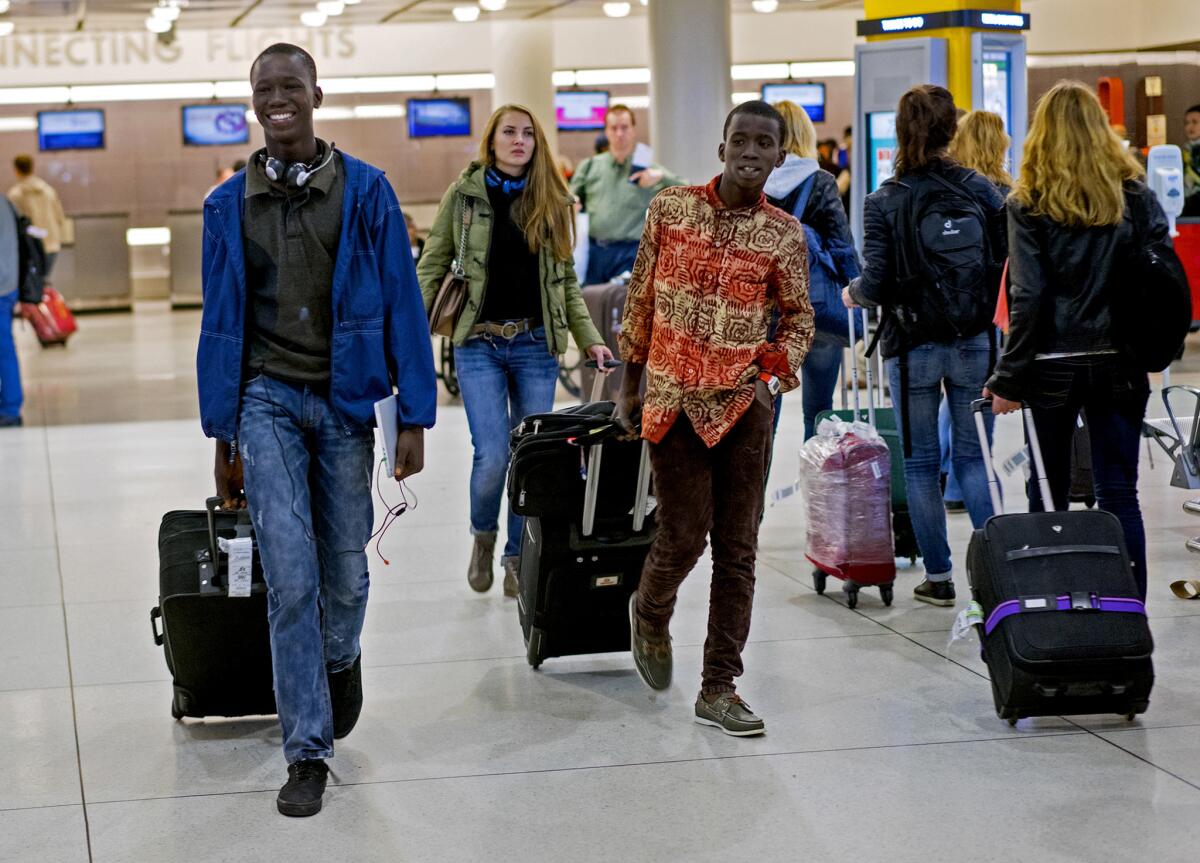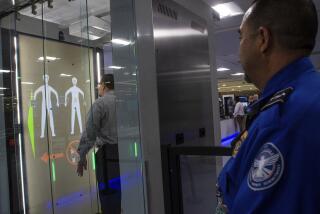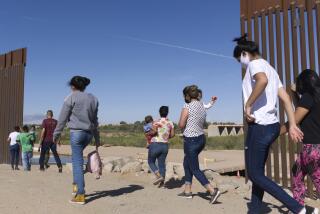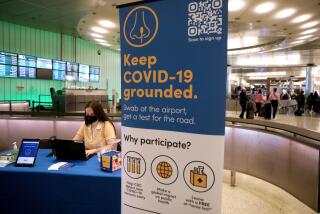Enhanced Ebola screening begins at New York’s JFK airport

- Share via
Reporting from New York — Passengers arriving from the three countries hit hardest by the Ebola outbreak in West Africa began undergoing enhanced screening Saturday before being allowed through immigration at New York’s John F. Kennedy Airport, the first of five ports of entry to begin the additional scrutiny in the wake of the country’s first death from Ebola.
Two of the first people to undergo the new measures, which include checking passengers for fevers, were the teenage sons of Marie Nellon, who waited impatiently for her children to appear in the arrivals hall after their Brussels Airlines flight from Monrovia, Liberia.
“It’s like a bomb you can’t see coming,” Nellon said of the virus ravaging her homeland, where her sons still live with their father. “You have to take every precaution.”
More than 4,000 people have died of Ebola in West Africa in the current outbreak.
Nellon, who is living in the United States, said she was bringing her sons, Johnson, 14, and Thomas, 17, to this country to get them away from the Ebola risk. She hopes they will be able to remain here.
“Last night, I was so worried I could not sleep,” Nellon said as the board in the arrivals hall showed that the boys’ flight had landed but had not yet arrived at its gate.
Her friend Jeremiah Gipli, who moved to New York from Liberia in 1995 to escape the nation’s civil war, said everyone in this city’s large Liberian community feared for their country’s future. Stopping Ebola, he said, would require changing Liberia’s culture of hugging and touching.
“We see each other and we shake hands, we hug. We are not afraid of one another, and it is my personal feeling that this is one of the big reasons for the spread of the disease there,” Gipli said. Until Ebola is stopped, Gipli said he would not go back and visit his homeland, much as he misses the hot weather, the spicy food and the warmth of the people.
Health officials announced the additional screening program on Wednesday following the death of Thomas Eric Duncan, a Liberian who arrived in Dallas on Sept. 20 and who was hospitalized eight days later. He was screened before boarding his Brussels Airlines flight in Monrovia, but he was not screened when he touched down in the United States.
Even if he had been, officials say he likely would not have raised any alarms because Duncan did not become ill until after he got to Dallas. But the new measures are aimed at providing Americans with extra reassurance and with stopping anyone who might be feverish or ill but missed by screeners when they are boarding flights.
In the next week, screening for passengers arriving from Liberia, Sierra Leone and Guinea also will be started at the international airports in Newark, N.J.; Atlanta; Chicago; and Washington-Dulles. The airports were chosen because they are the points of entry to the United States for 94% of travelers arriving from Liberia, Sierra Leone and Guinea.
JFK received nearly half of the travelers coming from the three countries in the 12 months ending in July 2014.
Ebola is only spread through direct contact with bodily fluids of a person with the virus, and health officials have said the chances of it spreading across the United States are very small, but it was clear from the reactions of people arriving at JFK on the Brussels flight that there is a stigma attached to the disease. Few people who had boarded in Monrovia would speak to reporters to describe the enhanced screening.
“No, I don’t have Ebola,” some said before scurrying away from a small press pack in the arrivals terminal.
When Nellon saw her two sons finally coming through the crowd, each pulling a wheeled suitcase, she leaned toward them and opened her arms. As the three hugged, the boys confirmed that they had their temperatures taken and were asked questions about their activities before boarding the plane. Then their mother hustled them away and told them not to answer any more questions.
Twitter: Follow @tinasusman for national news.
More to Read
Sign up for Essential California
The most important California stories and recommendations in your inbox every morning.
You may occasionally receive promotional content from the Los Angeles Times.











